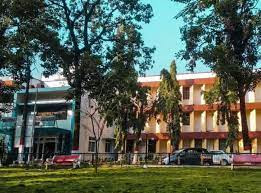Indian Railway Health Care Delivery System
Indian Railway Health Care Delivery System
Table of Contents
Introduction
Indian Railways operates a vast network of medical facilities. For cancer (Varanasi), heart disease (Chennai), orthopaedics (Kolkata), and plastic surgery (Mumbai), there are specialized hospitals. Additionally, 120 private hospitals are accredited to provide medical care. Railway workers are referred to medical schools and specialized treatment facilities, and their costs are covered. With a focus on maternal and child health, Indian Railways has its own Family Planning and Family Welfare centres.
Indian Railway Health Care delivery System has to perform the following two important functions: 1.1 Functions Related to Industrial Medicine, 1.2 Functions related to Medical treatment to Railway beneficiaries
1.1 Functions Related to Industrial Medicine
a)To attend Railway accidents & other untoward incidences. On average about 360 such incidences/year are attended.
b) To provide emergency medical treatment to travelling sick passengers.
c) Pre-employment Medical examination to allow only fit & suitable candidates to join the service. On average? 50000 candidates are examined/year
d) PME (Periodical Medical Examination) of serving employees to allow the fit person to continue in those jobs which are related to the safe running of the train. On average? 1,20,000 employees are examined per year.
e) Medical Boards & other medical certifications of serving employees.
f) Control on the loss of man-days on account of sickness (both normal & HOD). It is kept under control by medical officers. At present loss of mandays on sickness is only 2%.
g) Safe water supply at Railway Station: A constant vigil is maintained to check on the quality of drinking water made available at Railway Stations. About 60,000 water samples from Railway stations are tested for bacteriological purity every year. About 600,000 water samples from Railway stations are tested for residual chlorine. There is a well-laid-down system of reporting and taking corrective measures for unsatisfactory reports.
h) Safe food supply at Railway stations: Following activities are undertaken to ensure safe food supply at Railway stations.
a) Regular inspection of kitchen & food stalls.
b) Regular health check-up of food handle
c) Collection of food samples under the PFA Act.
d) Collection of food samples under a quality control system.
i) Ensuring Factory Act: Medical first aid posts are provided to all factories of Indian Railways (there are 84 such factories) as per Factory Act.
j) Workman Compensation Act: Activities related to WCA are undertaken on a regular basis.
k) Certification of dead bodies at Railway stations, Railway Yards, Railway lines, etc. is being done on a regular basis.
i) Certification of perishable goods in Railway Station about their disposal is done as and when required.
1.2 Functions related to Medical treatment to Railway beneficiaries:
Total comprehensive Medical treatment is provided by Indian Railway Medical Department.
A. Curative health care.
A.1 Primary level
A.2 Secondary level
A.3 Tertiary level
B. Preventive health care
C Promotive healthcare
2. Number of Railway beneficiaries:
Serving employees 14.5 lakhs x 4 = 58 lakhs
Retired employees 2.8 lakhs x 2 = 5.6 lakhs
with RELHS Scheme _______________________
Total = 63.6 lakhs
3. Infrastructure available:
3.1 Railway's own infrastructure
Total No. of Railway Hospitals = 121
Total No. of indoor beds = 13770
Total No. of Railway Health Units = 586
3.2 Other Hospitals approved
a) All Govt Hospitals are approved.
b) Private Hospitals:: About 120 private hospitals have been approved.
4. System of providing medical treatment
4.1 Primary-level health care is provided 100% by in house system.
4.2 Secondary level health care is provided 80% by in-house system and 20% by Govt Hospitals & other private Hospital recognized by Railway.
4.3 Tertiary level health care is provided 5% by In house system Balance 95% by Govt Hospitals & other private Hospital recognized by Railways.
Once a railway beneficiary comes to Railway Hospital for medical treatment, he/she is provided all types of Medical treatment as per the need of the patient. The medical treatment is either provided by an available Railway hospital or Govt Hospital or recognized private Hospital.
In an extreme emergency situation when there is no time for a railway beneficiary to come to the Railway hospital then he/she may avail treatment in a private hospital/Govt Hospital in the locality and can claim through the reimbursement claim system.
Source: Ministry of Railways (Railway Board) CMS Team(https://indianrailways.gov.in/railwayboard//view_section.jsp?lang=0&id=0,1,304,366,519,757)




Post a Comment